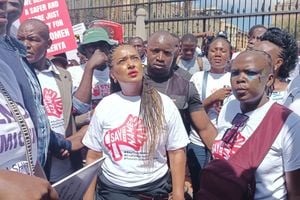
Sleeping next to a 24-hour singing and shouting church has become the norm when it shouldn’t be.
I give credit where it is due. Therefore, the recent closure of bars and alcohol outlets near residential areas and schools by the government is a big step in the right direction. However, the government must go further and deal with all types of noise pollution plaguing Kenyans.
Although a majority of city dwellers like those in Nairobi and Mombasa complain of being kept awake at night, I believe noise pollution is a 24-hour problem that runs night and day.
Noise pollution in Kenya starts with our roads. Matatus with their loud music have become a nuisance that has refused to go away. There have been attempts to tackle the issue, but like everything else in Kenya, corruption sets the agenda and the noise continues.
Traffic snarl-ups synonymous with Nairobi are another contributor to noise pollution with uncontrolled honking of cars. In fact, honking is heard even at night near residential areas as impatient drivers force their way through traffic.
The unplanned and out of control construction of new apartments in Nairobi and Mombasa has not only led to pollution from dust, but high levels of noise pollution as huge construction machines work around the clock to meet deadlines. Residents living near these apartments under construction going through hell.
Kenyans’ complaints are falling on deaf ears as counties issue building permits like sweets without allowing for environmental studies to take place first to find out how the construction industry is impacting on noise and dust pollution.
Areas such as Kilimani, Kileleshwa, Parklands and Lavington in Nairobi and Majengo in Mombasa have been turned into huge messy construction zones with little adherence to the law. The residents’ complaints about the noise and impact on the green spaces are going unheeded by the county bosses.
As the government turns its wrath on unplanned alcohol joints, it fails to realise that churches are just as bad. They are mostly constructed near residential areas and schools and conduct their activities just as loudly with all night singing and prayer sessions booming across estates. The noise from night church keshas is enough to even turn God deaf. It is not fair to be selective on noise pollution and only close bars and leave churches which have become just as bad in noise pollution.
An article on noise pollution by Stephanie Dutchen in the Harvard Magazine cites that ‘noise pollution is more than a nuisance. It’s a health risk’. Research shows that ‘noise pollution not only drives hearing loss, tinnitus, and hypersensitivity to sound, but can cause or exacerbate cardiovascular diseases such as type 2 diabetes, sleep disturbance, stress, mental health and cognitive problems, including memory impairment and attention deficits, and childhood learning delays.
Kenyans have generally become angry people. The poor economy and high cost of living are driving many Kenyans to despair. However, how much of the stress suffered by Kenyans is attributable to high noise levels in their environments? Sleeping next to a 24-hour singing and shouting church has become the norm when it shouldn’t be. Bars and disco matangas have become part and parcel of town and village lives. Noise from traffic on our roads is enough to drive a saint to drink from frustrations and sensory assault.
County officials have been deaf to all the noise in the towns and cities. As they look away and shirk their responsibilities, many Kenyans end up being left with serious health implications from the noise pollution.
There is talk of a boom in construction in Kenya, but what is actually going in the industry is chaos and maladministration by county and land officials who have thrown planning laws out of the window as they embrace bribery. Buildings just coming up out of the woodwork without proper planning is not development, but a recipe for disaster both in terms of public health and building safety.
Some of the construction sites have become graveyards as innocent Kenyans continue being buried alive under the rubble of poorly constructed apartments. What counties need to consider is not just the planning regulations, but also the impact to the environment, pollution both to the air, water and noise that is currently impacting on Kenyans’ lives.
Many at times when breaches of the law occur and lead to loss of lives be it from noise pollution or poorly constructed buildings, the blame goes to property owners. This now needs to change. Officials who fail in their duties to protect the public should be the first to be held culpable. There is no rogue builder without a rogue county or government official. Bribery is another pollutant that exacerbates threats to public health.
Noise pollution is getting out of control and it is time the government listened to the cries of the public and shut down the polluters. If the situation is not kept under control, we will be looking at a pandemic of hearing losses and rise in public health problems that could easily be controlled by enforcement of the law.
- Ms Guyo is a legal researcher, [email protected], @kdiguyo










